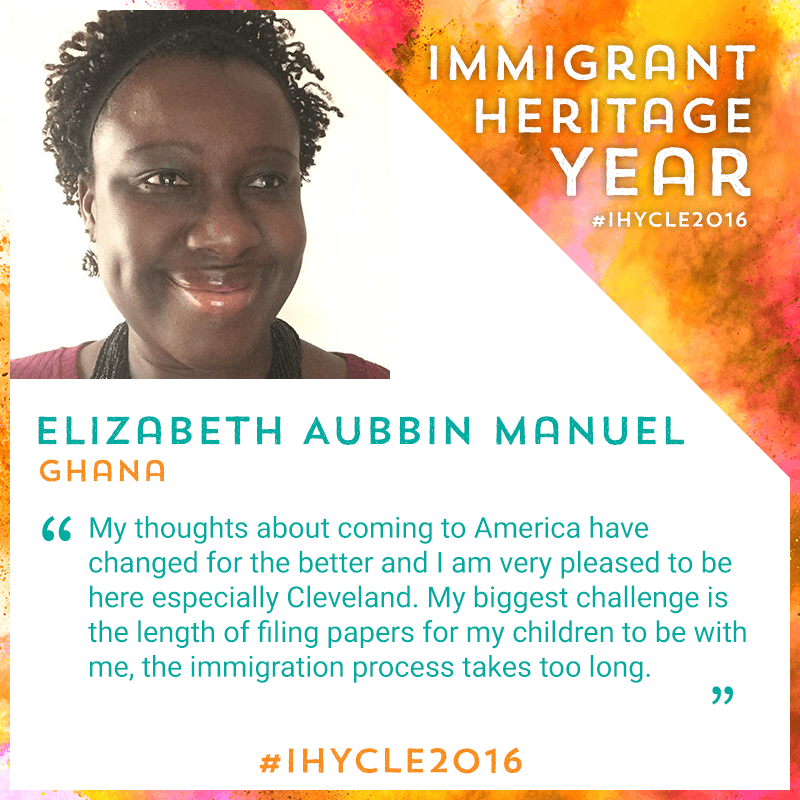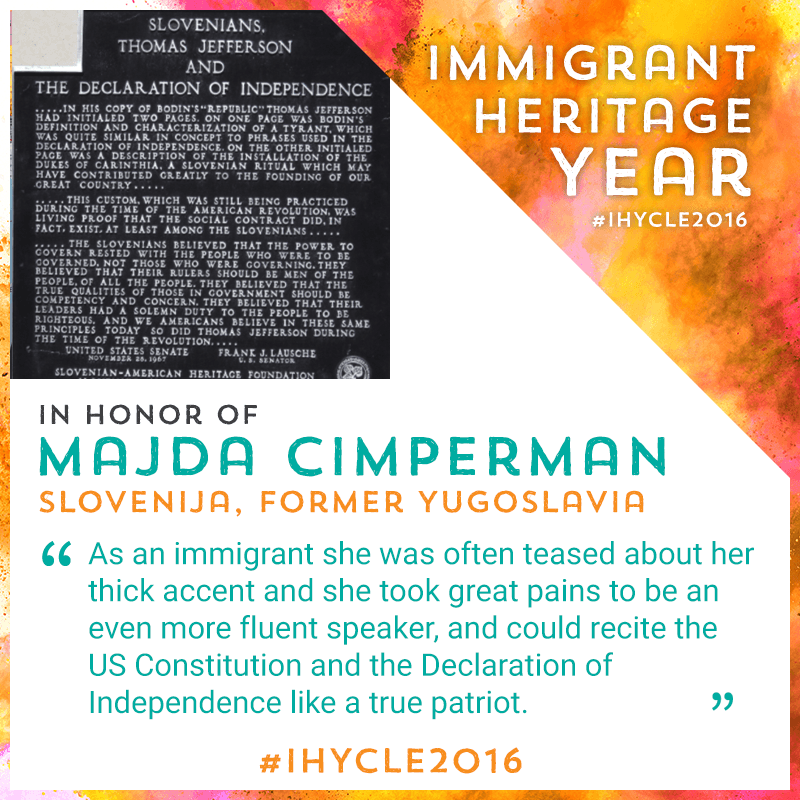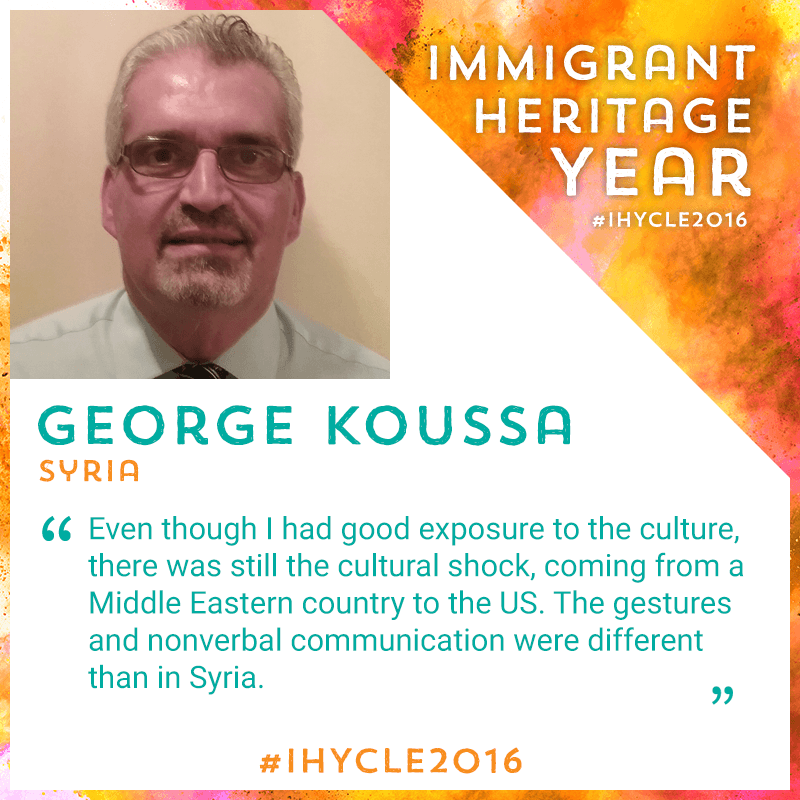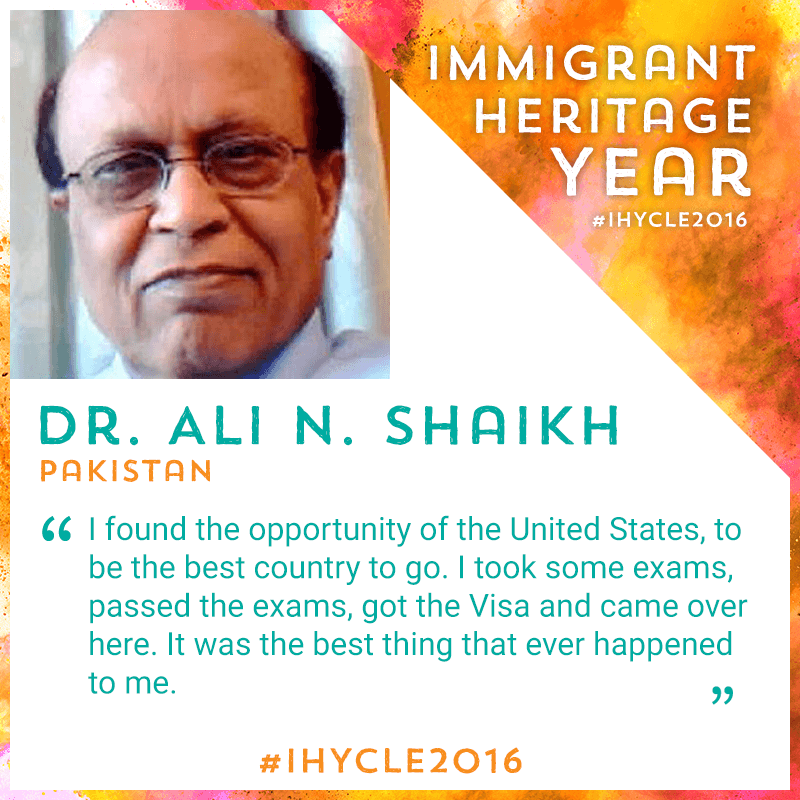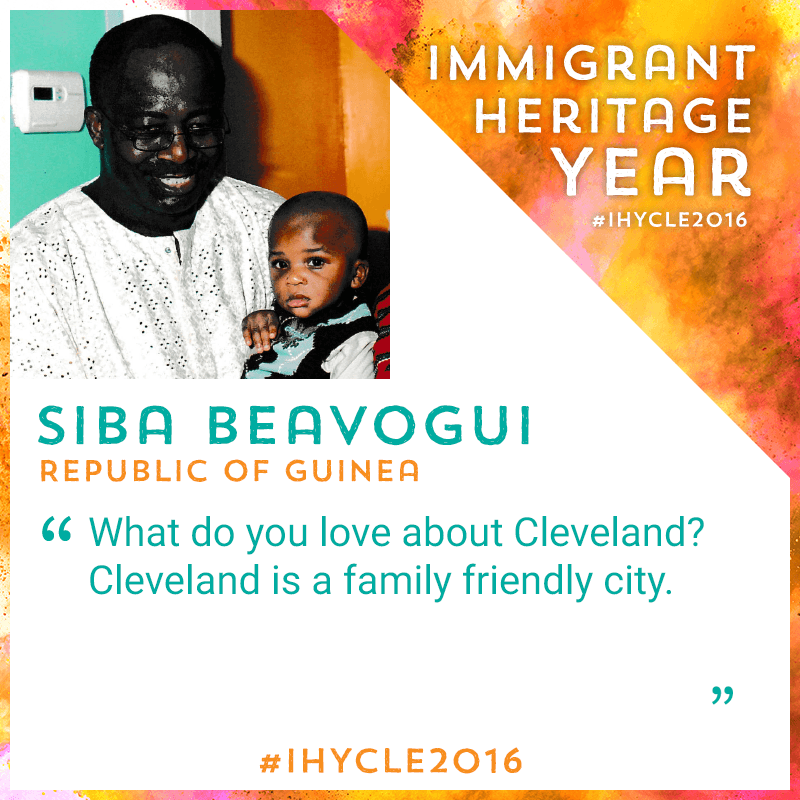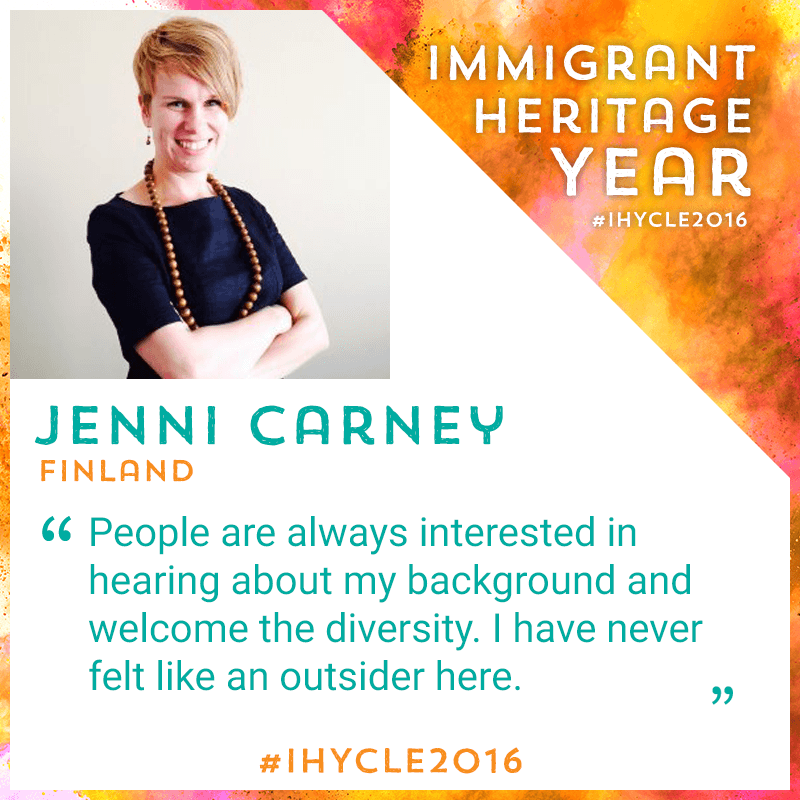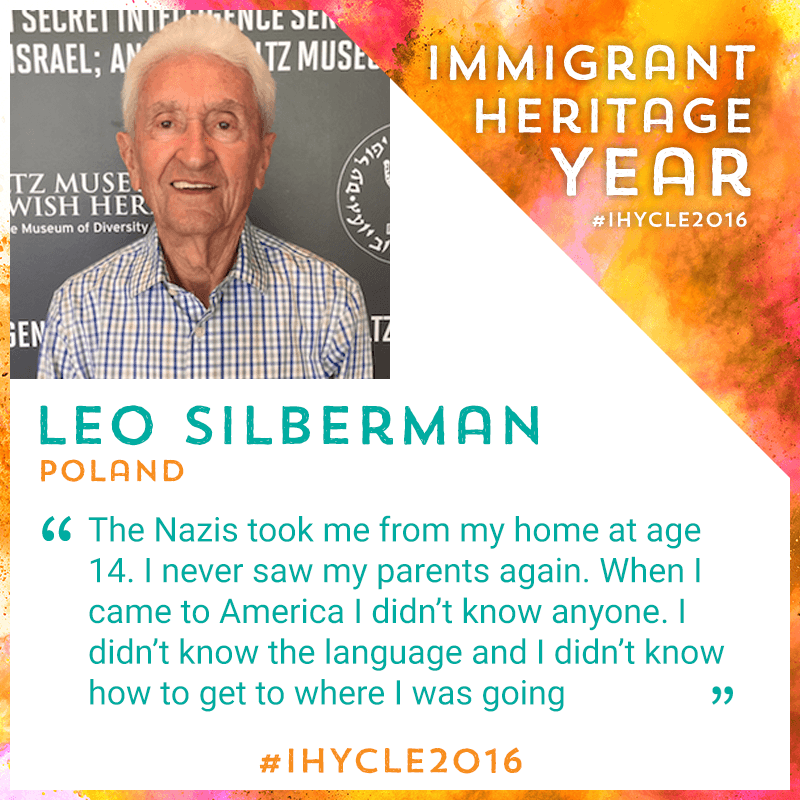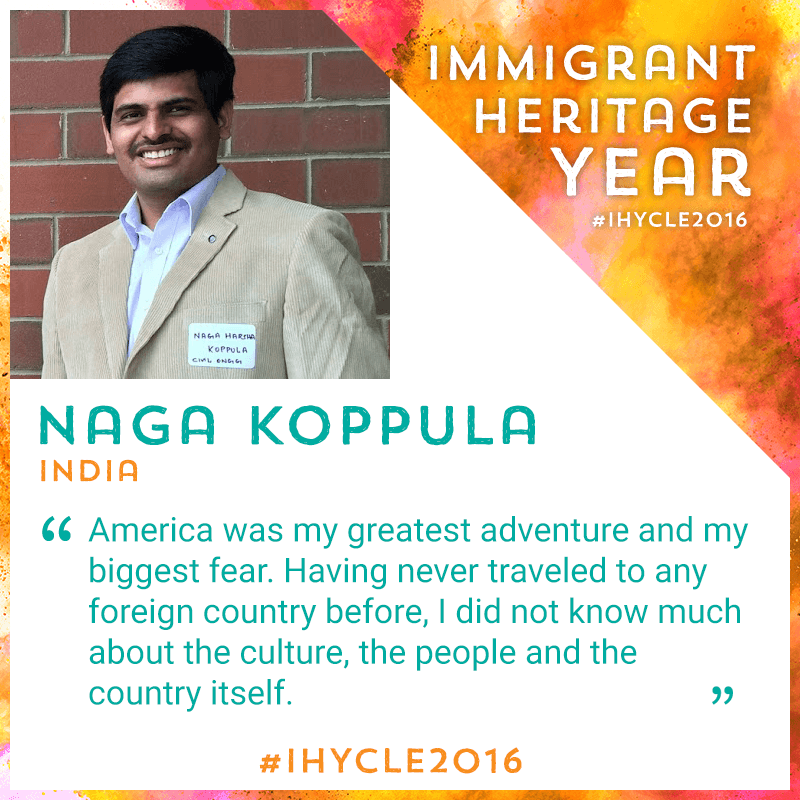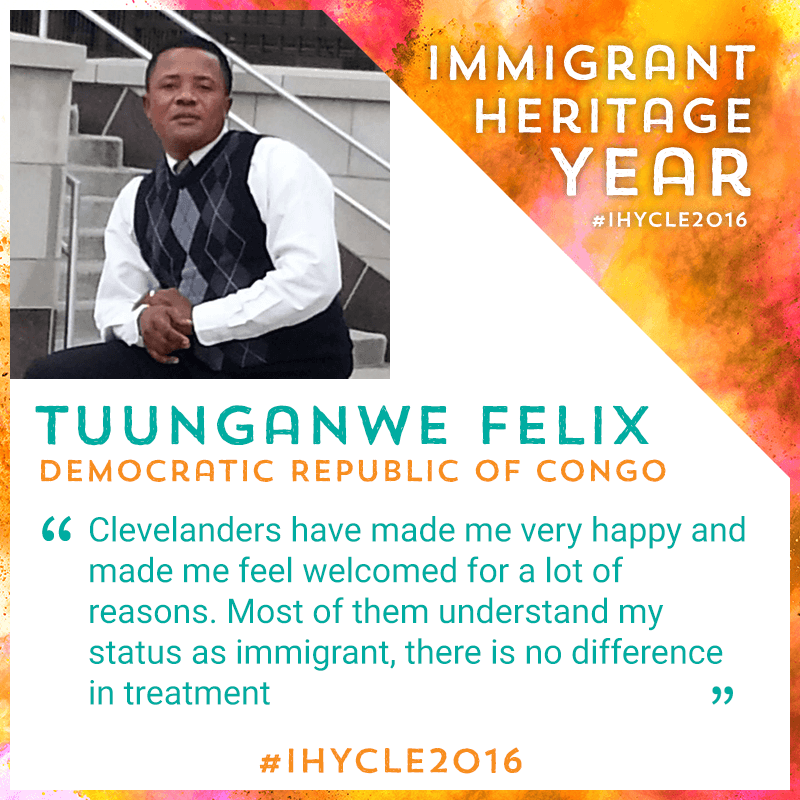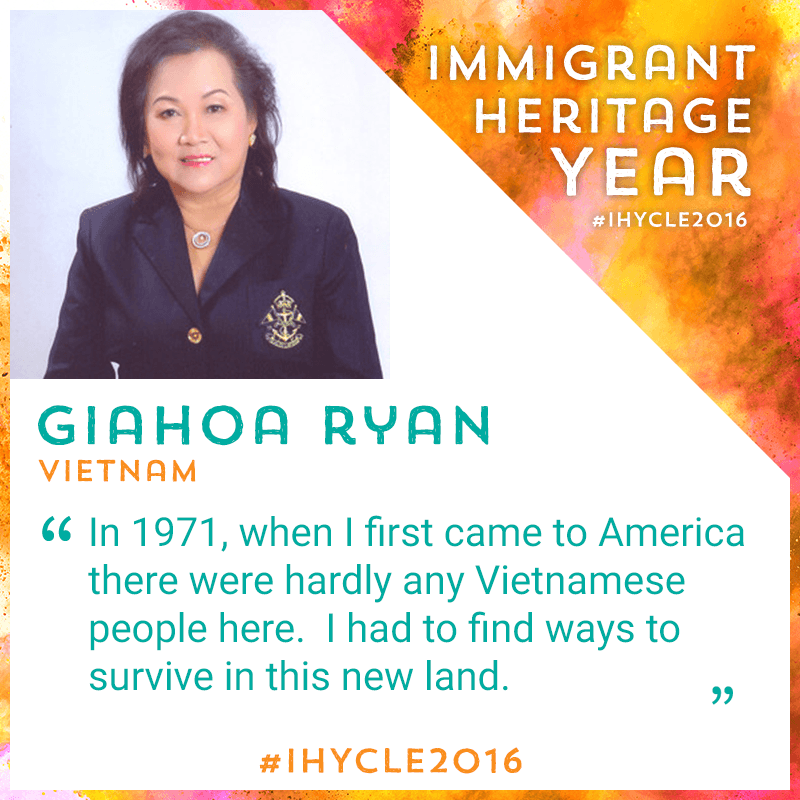Elizabeth Aubbin Manuel
My name is Elizabeth Aubbin Manuel, I am from Ghana west Africa. My dad was a king,he passed 7 years ago, growing up was very good because I am a princess but I was brought up strictly by my parents because of who I am.
I came to the United States in November 2010, I came to visit my cousin in upstate New York (Poughkeepsie) then I met my husband who is from Cleveland hence my migration to Cleveland. My thoughts about coming to America have changed for the better and I am very pleased to be here especially Cleveland. My biggest challenge is the length of filing papers for my children to be with me,the immigration process takes too long.
I am a seamstress, I do custom clothing and alterations for both men and women,I am looking to get a store to set up my own business but for now I can't afford the rent it's just too much,I wish I can get a grant that can set me up so that I can offer my services to support Cleveland. Clevelanders are very nice people and I really love the fact that they see everyone as family.
I do practice my customs by always wearing African prints to portray my culture,I love Cleveland because most of the people I have been in contact with are very friendly. Global Cleveland is a great resource because it portrays what goes on in Cleveland and promotes networking with other organizations, it is very important to welcome immigrants and refugees because we are all here to help promote the good image of the city and the country as a whole.
Majda Cimperman
My mom Majda, was born in Maribor, Slovenija ( former Yugoslavia) She was born in 1934, and would often speak to my sister Maria and me about her childhood in the midst of the Nazi invasions and the throes of a continent at war. She came to Cleveland for love, meeting my father Joe while he got on the wrong tour bus in the 1960's traveling to his ancestral homeland (Slovenija) to visit relatives. The two met and life happened and she came to Cleveland. She absolutely loved Cleveland, but she missed her family back home. Going to St. Vitus Church (largest Slovenian Roman Catholic Church in North America) and living in the awesome St. Clair Superior neighborhood (home of the 1st Slovenian community in Cleveland) made her feel more welcome and part of a larger culture.
As an immigrant she was often teased about her thick accent and she took great pains to be an even more fluent speaker, and could recite the US Constitution and the Declaration of Independence like a true patriot. She became a US Citizen and never looked back.
She worked as a travel agent, a bank teller, and volunteered at dozens of organizations while raising my sister and me. She taught us to speak Slovenian, and held close the traditions of Slovenian history: the celebration of St. Nicholas Day, the making of beautiful pine roped fruits and ribbons called "butare" the week before Easter, and the many small acts of celebrating a saint's Feastday or the remembrance of a relative long gone.
Her favorite thing to do in Cleveland was to take the RTA Number 1 bus downtown on St. Clair Avenue and walk Euclid Avenue and spend time on Public Square; she said downtown and its energy was the closest she felt to European Cities.
She often spent time with people who had immigrated to the US from other countries, she loved the stories of people's journeys and she knew how lonely it could be, she was as American as someone here for ten generations, in fact she never missed an election. Coming from a place where you could disappear for expressing an opinion contrary to a dictatorship, she would vote as if it were a sacred act of loyalty to this great country. She lived to see her homeland Slovenija liberate itself from Communist rule, that moment will forever be in my memory. She took me to this plaque downtown (still on west side of Mall B) and I treasure the ties between Slovenia and the United States of America::
George Koussa
Where are you from?
Syria
What was it like growing up?
It wasn’t easy. It was challenging, politically. It’s a lovely country with a nice people. There were diverse people from different faiths. However, it wasn’t easy growing up as a Catholic. In a dominant Muslim culture, it was difficult. We were able to maintain our faith and activities as Christians, but were unable to speak out.
I received free education all the way through college, and earned my BA in literature from the University of Aleppo. Then, I went to work as a translator for the United Nations Peacekeeping Forces.
What brought you to Cleveland?
I decided to visit because I had family who had moved here. My uncle, who lived in Lakewood, encouraged me to come here. I came on a tourist visa to see what my opportunities would be. I came to the United States in the fall of 1986, and started to work toward my master’s degree at Cleveland State University, where I received a scholarship.
What were your first thoughts about coming to America?
I felt I belonged here. I felt the U.S. was my destiny. I love this country. I love the people here. It’s not perfect, but nothing is perfect.
What challenges did you face as an immigrant transitioning here?
Even though I had good exposure to the culture, there was still the cultural shock, coming from a Middle Eastern country to the US. The gestures and nonverbal communication were different than in Syria.
What is your occupation?
Public relations administrator and Arabic translator/interpreter at Margaret W. Wong & Associates LLC Attorneys at Law
<st
rong>How have other Clevelanders made you feel welcomed?
They’ve made me feel very welcome.
What do you love about Cleveland?
I see it as a friendly place. People are very friendly. We have a lot of good education institutions, medical institutions. I also like the cultural diversity and the various ethnic groups in the Greater Cleveland area.
Why is it so important to welcome immigrants and refugees?
This is a nation of immigrants. We are stronger because of this.
What suggestions do you have to make Cleveland a more welcoming community?
There should be more media exposure of cultural groups, in addition to more large-scale meetings involving the City of Cleveland and educational institutions, where speakers would be invited to discuss their respective cultural group with the community.
Dr. Ali N. Shaikh
Where are you from?
Pakistan, Sindh (province)
What was it like growing up?
There was no electricity, no running water. The school had only about 40 students.
What brought you to Cleveland?
I found the opportunity of the United States, to be the best country to go. I took some exams, passed the exams, got the Visa and came over here. It was the best thing that ever happened to me.
I got an offer from a hospital. I knew someone in Cleveland, and he thought I should come here, so I did. I took my chance, and I’m happy that I came.
What were your first thoughts about coming to America?
I had read a lot about America, and my God, there’s a difference between reading and seeing. When I saw things here in person, I was very impressed.
What challenges did you face as an immigrant transitioning here?
My accent was tough for people to understand. It was tough to learn the different parts of the culture. I didn’t know you were supposed to write a thank you note when someone does something nice for you, but now I do. I was very much interested to learn the cultural norms. I tried my best to learn, I’m happy I did it.
What is your occupation?
I’m an intervention cardiologist.
How have other Clevelanders made you feel welcomed?
Very good, very welcoming. I personally was very welcomed. I had no problem. There were little differences here and there, so you had to compensate for that, but it would worked out very well. I’m proud to be here.
What traditions or customs do you continue to practice?
Not much, really. I keep in touch with the family, that’s all I do. I don’t practice anything. I don’t go to any church or any mosque
What do you love about Cleveland?
It’s a big city, and everything is available. People are very receptive to foreign immigrants.
What is your favorite thing to do in Cleveland?
I was a private pilot as a hobby, but I am older now, so I gave that up. Now, I have a house with a big yard. I’m always busy working in the yard.
Why is Global Cleveland a great resource?
Any organization that helps people is needed. When I came, there was no such organization. It would have made things easier.
Why is it so important to welcome immigrants and refugees?
Why not? We’re all the same people. The people who come from foreign countries look to be apart of us, so I welcome them, and do as much as I can to help them. This is the melting pot. This country is made of everybody. Everybody’s foreign.
What suggestions do you have to make Cleveland a more welcoming community?
More organizations like Global Cleveland that can give help and advice. There needs to be more communication to people who are coming here and people who are here. We need to communicate that we are ready to help out.
Siba Beavogui
Where are you from?
Republic of Guinea (Conakry) West Africa.
What was it like for you growing up?
Normal
What brought you to Cleveland?
A Friend.
What challenge did you face transitioning as an immigrant here?
Adapting to the weather and the culture.
What is your occupation?
Machinist.
How have other Clevelanders made you feel welcomed?
My surroundings have been supportive.
What traditions or customs do you continue to practice?
I continue to practice my Christian traditions.
What do you love about Cleveland?
Cleveland is a family friendly city.
Jenni Carney
Where are you from?
I am from Finland. I moved from Helsinki to Cleveland ten years ago.
Why did you #ChooseCLE (what brought you to Cleveland)?
My husband is American and he grew up in the Cleveland area. Even though I was always interested in different cultures and countries, I never thought I would end up living in the U.S. until I met him. He convinced me that Cleveland is the place to be!
What were your first thoughts about coming to America? Did those change?
I have always loved traveling and exploring different cultures, so I approached moving here as an exciting adventure. Any country has its good and bad sides and as an expat I can celebrate all the great things about both countries I claim mine!
What challenges did you face as an immigrant transitioning here?
Cleveland is a very welcoming place and I have made wonderful friends in here. Both friends and family have helped make me feel like home so it has been a very smooth transition. Culturally, Finland isn’t too different so I didn’t experience a major culture shock when moving here.
What is your occupation?
I am Development and Membership Manager at the Cleveland Council on World Affairs. It is a great organization that helps connect my personal story and interest in global issues to my professional background.
How have other Clevelanders made you feel welcomed?
People are always interested in hearing about my background and welcome the diversity. I have never felt like an outsider here.
What traditions or customs do you continue to practice?
We celebrate Finnish holidays and add a Finnish flair to those holidays that are celebrated here. I occasionally cook traditional Finnish food and I speak Finnish with my children, who were both born here in the U.S.
What do you love about Cleveland?
Cleveland is a great place to live: pace of life and cost of living are great, it is easy to get around, there are great restaurants and outdoor activities, you can find wonderful arts and culture, and Clevelanders are friendly and welcoming people. Cleveland is a surprisingly international place for a city its size. I love that diversity here.
What is your favorite thing to do in Cleveland?
My favorite way to start a day is to walk to On the Rise Bakery in Cleveland Heights for breakfast - their breads are amazing and they bake authentic Finnish rye bread!
Leo Silberman
The Nazis took me from my home at age 14. I never saw my parents again. When I came to America I didn’t know anyone. I didn’t know the language and I didn’t know how to get to where I was going
Where are you from?
Near Krakow, Poland
What was it like growing up?
The Nazis took me from my home at age 14. I never saw my parents again. I was eventually taken to the Plaszow concentration camp (in Poland), and, later, the Buchenwald camp in Germany. Eventually, Jews were taken on a death march from the camp to the train station. I did something that they didn’t expect me to do. I fell down, on purpose. As everybody was marched over me, because the guards were pushing, one of the guards punched me in the mouth, and knocked my teeth out. But, I was lucky they didn’t take out their gun to shoot. Soon after, I went back to the camp and blended in with the non-Jews. The following morning, the guards took us to the railroad station, where we boarded a large locomotive that took us to Theresienstadt in Czechoslovakia. Four or five days later, we were liberated by the Russians. I ended up living in a displaced persons camp in Landsberg, Germany for about two years. There, I went to a night school and learned how to drive. I worked for a motor pool, driving a GMC truck thirty miles twice a week from Landsberg to Augsburg, Germany to bring food and clothing to the people in the camp. I also worked in the camp’s food distribution center.
What brought you to Cleveland?
When I came to Ellis Island at the age of 20, the Jewish Community Center in New York assigned all the incoming survivors a place to live. I was assigned to Council Bluffs, Iowa, where I lived for a little more than two years. While I was there, I got a job stocking shelves at a grocery store. On the weekends, I would spend time in Omaha, Nebraska, where I learned how to do electrical work. After my time in Council Bluffs, I decided to move to Cleveland to be with a girl who I knew from my time in Landsberg. She would later become my wife. Upon arriving in Cleveland, I spent about two years working as an electrical contractor. Then, I opened up my own electrical contracting business (L&S Electric).
What were your first thoughts about coming to America? Did those change?
I wasn’t afraid to go out. I wasn’t afraid. The first act was to be thankful that I was still alive. A miracle helped me get here.
What challenges did you face as an immigrant transitioning here?
I didn’t know anyone. I didn’t know the language. I didn’t know how to get to where I was going.
What is your occupation?
Owner of L&S Electric (Retired)
How have other Clevelanders made you feel welcomed?
I didn’t have any family here. The families my wife knew were very nice, and helped us get an apartment. They helped us to get jobs, so it was helpful.
What traditions or customs do you continue to practice?
Tradition, I believe in. If we have holidays, I like the traditional thinking of what it stands for, but this doesn’t mean that I go and pray for an hour or two to God. I like the tradition, I like the food, but I’m not the type that would run to pray every day or every week. I try to be a decent person. I tell the people about the Holocaust, and tell them that it happened, because we probably have a lot of people today who don’t think it happened. And, my obligation is to go around to schools [and other places] to let them know it did happen.
What do you love about Cleveland?
It’s a nice area with nice people. The Maltz Museum [of Jewish Heritage] does a lot of good. There are a lot of good things going on.
What is your favorite thing to do in Cleveland?
I like enjoying the different seasons. Some of them I like better than the others. I like being with the people who are here.
Why is Global Cleveland a great resource?
If you are establishing a life here, you want to have a good resource, a place that helps you.
Naga Koppula
America was my greatest adventure and my biggest fear. Having never traveled to any foreign country before, I did not know much about the culture, the people and the country itself. I came to Cleveland to do my masters and this is my first time studying in the United States. Cleveland is a wonderful city from my first day. All that I am today is what I have learned after moving here. Every experience I have had in Cleveland has been valuable and every person I have met has helped me grow. The culture and language has raised my confidence level to which I have never ever imagined .Studying in Cleveland has made me independent and I would say that it has made me become a better person and I think many of my friends studying here have had the same experience as I did. I am currently looking for a job in civil engineering in Cleveland.
Tuunganwe Felix
Where are you from?
My Name is Tuunganwe Felix, and I'm from Democratic Republic of Congo.
What brought you to Cleveland?
I left my country in 1999 to go to to the Lugufu Refugee Camp in Tanzania. I got my first job and worked as Refugee Food Committee President for 8 months and then found another position with CORD (Christian Outreach Relief and Development ) working as Social Worker. After multiple social problems, in 2003 I left Tanzania and went to the Mozambique Refugees camp Called Maratane, to start new life. Here I worked agriculture activities until getting a job with World Vision International,i worked in SGBV(sexual gender based violence) Department in coordination with UNHCR to support refugees in the local integration program. In 2010 I had my resettlement case opened and I came to the USA. I came through Houston Texas and after 6 months I moved to Cleveland.
What were your first thoughts about coming to America?
The opportunity to be in this country and Cleveland could change my life.
What challenges did you face as an immigrant transitioning here?
As an Immigrant, I had two big challenges; talking English and understanding American culture.
What is your occupation?
I'm a caseworker at US Together.
How have Clevelanders made you feel welcome?
Clevelanders have made me very happy and made me feel welcomed for a lot of reasons. Most of them understand my status as immigrant, there is no difference in treatment for job opportunities between immigrant to Americans Citizen.
What traditions or customs do you continue to practice?
I still practice my tradition though American's customs
What do you love about Cleveland?
I really love Cleveland's weather and helping those who do not speak english.
What is the best thing about living in Cleveland?
The best thing living in Cleveland is multicultural community.
Why is it important to make Cleveland a more welcoming community?
Welcoming refugees and immigrants is very important because they contribute to the development of Cleveland and Ohio in general.
How can Cleveland be a more welcoming community?
Learn more about refugee and immigrants cultures, create a good approach for their arrivals and supporting different community initiatives through their development projects.
Giahoa Ryan
Where are you from?
I am from Viet Nam. My father came from North Viet Nam and came south to resettle in late 1930. My Mother is from South Viet Nam. My Mother and Father met in the South where they were married. I was born in the south of Viet Nam. When I was a few years old, my Dad was transferred as a serviceman to the center of Viet Nam where I and my family grew up. So I consider myself as representing all of Viet Nam.
What was it like growing up?
I was the oldest of 12 children. My father was a soldier. I grew up in a military family where discipline and hard work were very important. We were trained almost like soldiers to obey and follow a sense of duty. As the oldest child in the family, I was expected to help with each of the younger ones. This included taking care of them, feeding them, and helping them with school. My Father decided we should settle down in Nha Trang, a coastal city, where he also continued his military career. I also was expected to help with family income while going to school. So from eight years old, I worked with the family business.
I helped my Mom to create various items for selling and worked with her on food items.
During American involvement in Viet Nam, I obtained employment as a bartender in the Officers’ Club. A little later I obtained a second job which was in the daytime working as the Supervisor for the housemaids who worked in the military base housing area.
While doing all of this, I continued my schooling. A little while later I obtained a position as Secretary and Interpreter for NCO and Officers Club Sections. Meanwhile I still kept my evening jobs as well.
Sometime later I met a man whom I fell in love with, who worked for the FAA and the rest is history.
Later in 1971 I came to the United States. My goal was to continue my education, but that was not really possible because of having a family as well as the fact that my husband had to move around for his job. We stayed in Lorain, Ohio, for a short time, but then we had to move to Guam. While in Guam, I found a job in only a week and worked as a Secretary at the Duty Free shop. Within six weeks I became the Assistant Jewelry Buyer and handled all the customers from around the world who came to Guam. I had to oversee all the salespeople who worked there and deal with the buyers as well.
Later in 1975 we moved back to the United States and we settled in Lorain County. I settled there to raise my family while I also created jobs for myself. This included teaching cooking at the Lorain Community College. I taught there for vocational school and also I taught in different places for cooking, especially Asian cuisine. I also started a food truck eating business while also opening a restaurant in Lorain City. In addition I was active in operating a catering business.
What brought you to Cleveland?
In 1971, when I first came to America there were hardly any Vietnamese people here. I had to find ways to survive in this new land.
In 1975, when everything collapsed in Viet Nam, more people came here from Viet Nam. I was part of the community coalition called the Vietnamese Information Services (VIS) that helped people resettle here Although I was living in Lorain County, I came to Cleveland many times to help the new arrivals who were settling mostly in the Cleveland area.
For twenty years I could not see my own family. Although in the early 1970’s I had managed to return to visit them, after 1975 that was impossible to do. I tried for many years to sponsor my family to come to the United States. Finally I made a connection with them and I returned to Viet Nam in 1993. I saw the situation there and all the devastation. I knew I had to do something to help not only my family but as many other Vietnamese as I could. That is when I established the Friendship Foundation of American-Vietnamese with help from many good people as well as veterans. Our goal was to “build bridges of friendship” between the people of Viet Nam and the people of America. We have conducted some forty missions to Viet Nam and Asia and sponsored over one thousand volunteers who have performed humanitarian work there.
Finally in 1997 after much more work, I finally brought my first relatives here. That was to Lorain County. During 1997 more family members came under my sponsorship. They initially came to Lorain where my home was located. At one time over twenty members of my family lived at my home. I then made an executive decision to move all my family to Cleveland. Also there was a larger Vietnamese community here which welcomed newcomers. I had to find jobs for my family members which I did on the East Side of Cleveland in a factory.
I myself had to resettle here and set up another residence I could work much better with my family here as well as other members of the growing Vietnamese community.
I opened my business here. The first was a carry out Asian food restaurant on East 55th. I had to close this when I established an agency to help my people. So many of them from Indochina had various mental health problems due to their resettlement here. This particularly included the senior citizens (who often felt lost and isolated) as well as people who had managed to survive the murderous regime of Pol Pot.
I wanted to establish a community agency to serve these people who needed an agency that understood their culture, customs, and what medicine was best for treatment. We sought funding and tried to find a sponsoring agency. I chose the West Side Community Health Center. Attorney Joseph Meissner introduced me to Director Ralph Fee of WSCMHC and I asked him to set up such a program. While WSCMHC had one part-time person working there with Asian backgrounds, there was no overall program as well as an energetic and knowledgeable director of this program. When he could not find anyone else, Director Fee asked me to take over. I finally agreed but I was compelled to close my restaurant business. I said I would serve one year but that turned into a number of years.
I recruited and hired others for the work who had Asian backgrounds. This also included sponsoring a psychiatrist from Viet Nam. I had interviewed many in Viet Nam and finally chose Dr. Dang Thanh, who was a young doctor who had some experience in Viet Nam in mental health work. But he did not have the psychology background necessary for this work. Our Foundation sponsored him to come to the U.S., to work at the WSCMMC, and at the same time to continue his education where he eventually earned an MA at Cleveland State University.
Meanwhile I had sponsored more of my family and relatives from Viet Nam. I sponsored almost forty people including the children. Since then, my family members have had some nineteen babies, now aging from fourteen years old to a few days. (The latest baby was born to my niece and her husband on June 3, 2016.)
What were your first thoughts about coming to America? Did those change?
Since I was working for the U.S. government and had much interaction with American young soldiers, I knew something about American ways and culture. I also studied and read about America. So I had a lot of good thoughts and expectations about America and its people.
Here is one small example: in America you eat but do not have to do dishes. You can throw away the paper plates. I thought that Americans must be very rich. When I did get here find out, I learned it was not totally that way.
When I came on the flight to America, I was looking for the Golden Gate bridge in San Francisco. I did not see that the bridge was golden but actually reddish brown. I told my husband, “The Golden Gate is not gold; it is brown, reddish brown.”
I also saw neighborhoods and houses in many areas of Cleveland. I remember the sight of these. But now I see the change, such as those made by Cleveland Clinic. Now there are huge hospital buildings. The head of the Cleveland Clinic is a Vietnam veteran. I see now there are Vietnamese doctors there as well as others from other countries. So again the changes have been for the better.
When I came, I am a Vietnamese from a war torn country. I see a lot of hatred and discrimination against us the newcomers coming from VN. But over the years everything has changed and for the good. I have learned about a lot of different cultures and thus can interact with many people. I learn about businesses and about each other’s culture. So I expected some hard times in adjusting initially to America. But I have always met so many good people who are very welcoming and helpful. There are so many good hearted people
What Challenges did you face as an Immigrant transitioning here?
- Overcoming prejudices especially toward Viet Nam because of the war was a big challenge. In 1971 when I came, the war still was going on. Many people gave their lives, including many American soldiers. Much opposition to the war was here in America. People even threw things at us or spit at us. There were hostile reactions in the market where I went. People stared at me with hostile faces. But I learned how to deal with this, to stand up, and thank them for all the sacrifices them and their family had made.
- The Weather was a big challenge. It was cold when I came in November. My clothing was not warm enough and I had to get all sorts of warm jackets and clothes.
- Food was a challenge. Cleveland did not have food that I am accustomed to. This included Rice, fish sauce, and even vegetables. Only one store, a small Japanese store on Payne avenue, had some items we needed. They only allowed 4 people to come in at a time. Sometimes they chase us out because the store was so small. At first the people did not seem that friendly, but that all changed and we became good friends.
- Language was a challenge even though I already knew much English very well and had functioned as an interpreter both in Viet Nam and later in the United States
- Cultural and customs were different. I knew many of these but had to learn about more.
What is your occupation?
I am an expert in various fields and have worked in many different fields. Here is a list of some of these
- Interpreter: courts, government, and private matters
- Entrepreneur and business owner. I have owned various restaurants and businesses. I have also overseen business operations such as the Food and Beverage Director at the Renaissance Hotel in Lorain.
- Business consultant: I have helped many businesses get started and then helped them in their operations,. This includes accounting, tax work, nail salons and schools.
- Community activist: I held volunteer offices in Lorain with Community Mental Health and Alcoholism Board as well as with agencies in Cleveland including the Detroit-Shoreway. I have also been active with Asian and Vietnamese community groups.
- Founder and Director of a nonprofit charitable organization: Friendship Foundation of American-Vietnamese. We have sponsored over one thousand volunteers to do humanitarian work there in Asia.
- Food and cooking expert: restaurants, community events, and other sites.
- Operated a Low Income Tax Clinic for fifteen years. This was one of the oldest LITC’s in America helping thousands of low income families with tax information and issues.
- Adviser to Mayors and City officials in Cleveland. This includes fifteen years of membership on the Mayor’s Community Relations Board, having been appointed under three different Cleveland mayors.
How have other Clevelanders made you feel welcomed?
Many people have made me and my relatives feel very welcome to Cleveland. Let me list some of them and what they did to make us feel welcome
- Stephanie Tubbs Jones welcomed me. I felt so sorry when she passed away. I was honored when I was selected along with other female community leaders for a photography exhibit in tribute at Cleveland Hopkins Airport/
- Congressperson Donald Pease: he helped me with advice to bring over my family and sponsor them.
- Charles Moser, Congressperson: he also helped me sponsor all my many family members.
- There were other community leaders such as our great Mayors, our Councilpersons such as Matt Zone, Brian Cummins, Jeffrey Johnson, Jay Westbrook, TJ Dowd, and others.
- So many Clevelanders made me feel very welcome. Of course, I am an optimistic person who believes very much in other people and their abilities so we all can work together to make a better city and community.
What traditions or customs do you continue to practice?
Our family continues to practice all of our traditions and customs that we have from our parents and grandparents in Viet Nam and the people in Viet Nam. These are in many ways similar to the wonderful customs and traditions of our other ethnic groups numbering more than 117 in our city.
- One of the main traditions is TET or the New Year’s celebration. Vietnamese return to their families and home areas for this great season which in Viet Nam can last three weeks, although in the U.S. it lasts about a week.
- Other holidays include the Moon Festival for Children in the Fall, Teachers’ Day, and various religious holidays such as Buddha’s birthday.
- We encourage all my family members and our children to preserve their language and culture as well as learn English and about American history and customs.
- Promoting respect for our cultural values. This includes respect for the elderly and for our parents. These are very strong. We also promote respect for law and lawful authorities.
- We also believe strongly in helping others especially if they are having some serious current problem. That is how my parents taught me.
What do you love about Cleveland?
- Beautiful lake
- Our tremendous weather with the four colorful seasons.
- Our Museum of art available to all
- Our Cultural gardens to celebrate various ethnic groups. I am very proud that I am part of the effort to establish a Vietnamese garden. We finally have secured the property site on Dr. Martin Luther King Boulevard and are raising the necessary funds for this.
- Almost any family can buy and own a beautiful house. This is at far less money than elsewhere.
- Good schools like high schools and colleges
- Great leaders of our city government. Includes Mayors Michael White, Jane Campbell, Frank Jackson and such leaders as Martha Fudge, Dennis Kucinich, Senators Portman and Brown. Past leaders such as Louis Stokes and Voinovich also we must admire.
- All the cultural sites and events. Includes great Asian Festivals and Celebrations at City Hall which I have been involved with for some 20 years.
- Foremost the great people I have met from so many different ethnic and religious backgrounds. I have worked for many years with community relations board with its great and enthusiastic directors such as the current Blaine Griffin, and past ones including Dennis Dove and Sam Thomas, and others.
What is your favorite thing to do in Cleveland?
- Go to various community events in Cleveland.
- Visit various restaurants where we can “hang out”
- Movies and other forms of entertainment including at the Ohio theater
- Participate in Festivals such as the Great Asian Festival annually in May
- Meet so many new and interesting people
What is the best thing about living in Cleveland?
- Affordable Housing
- Good Living environment
- The weather is good. Sometimes I do not like the snow. I remember my First Motherland which has so much warm weather and almost no snow.
- We are near so many places: Toronto, New York, Chicago, and Washington D.C. Everything is near-by. Travel usually takes less than a day, even by car. We have excellent transportation by land, air, and water.
- There are many good organizations, such as ICC-WIN and others People you can meet.
Why is Global Cleveland a great resource?
Since I travel around the world and meet many people, I have a wide variety of connections with many business people, all the students, and others. I am from Vietnam and I have brought many guests and students from there. They need an organization that can help introduce them to our area, give them ideas and insights about Cleveland, and even help them eventually to settle here.
Recently President Obama visited my First country. We should take advantage of the avenues his trip has opened up. I would like to see Global Cleveland have a special outreach to the Asian countries and especially Viet Nam.
We also have a great new Director for Global Cleveland, Joseph Cimperman. We must work with him so that Global Cleveland can bring together our city, and provides so much to attract and welcome newcomers.
Why is it so important to welcome immigrants and refugees?
Our region needs more people. We need them for our neighborhoods and for our industries and businesses. They are both customers and workers.
Immigrants are good hard working people who want to build up a good life for themselves and their family. Immigrants are the fabric of America. The refugees and immigrants need a place for shelter They want to find peace for themselves and their families and generation to come. Cleveland is an excellent place for their new home.
We are all immigrants and sons and daughters of immigrants. That is how we built up our country and City. That included the Irish escaping from famine and bad economic conditions who came here to settle and all the people from Eastern Europe escaping from Communism, and all the people from the South of the United States. Many of the latter were those of Afro-American background who came to our city especially during the World War II years, and all the recent arrivals including millions from Viet Nam, Cambodia, Laos, and Africa and Puerto Rico and Mexico seeking a new life.
We want to invite all of them to go to Cleveland, they are welcome, and together we can make Cleveland the great city it is.
What suggestions do you have to make Cleveland a more welcoming community?
- Obvious signs of welcome at major highway entrances
- Signs at Railroad and Bus terminals and air terminals
- Media messages of welcome
- Public welcome events quarterly at different places in the city. All new people welcomed and recognized. Meetings with older residents
- Award of houses to families. Redo old neighborhoods. Rescue houses and start new areas. Fill in holes in old neighborhoods.
- Monthly or quarterly job fairs downtown for newcomers
- Welcome newcomers to families, namely babies born at local hospitals. Set up bank accounts for them for their education at Cleveland colleges.
- All ethnic groups: Build a Cleveland Cultural Center. Take a building and rescue and use it. At least every ethnic group would have one home
- Global Cleveland sponsor quarterly at least one welcoming event for newcomers.

